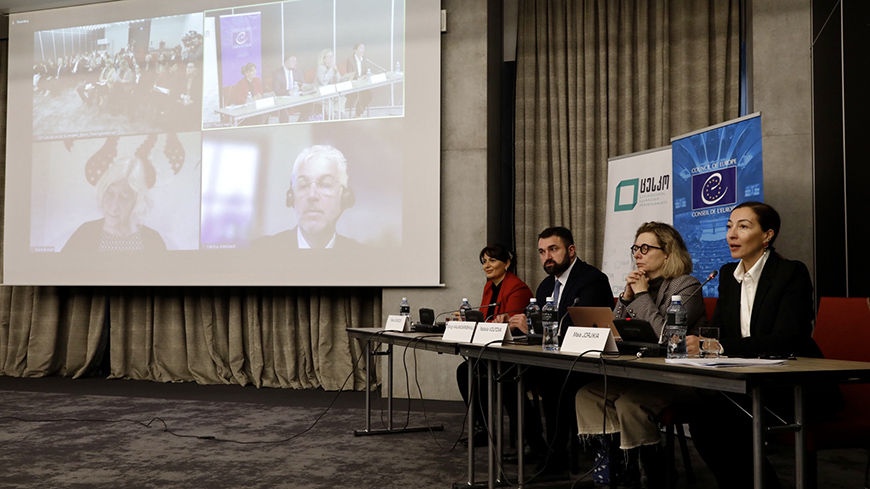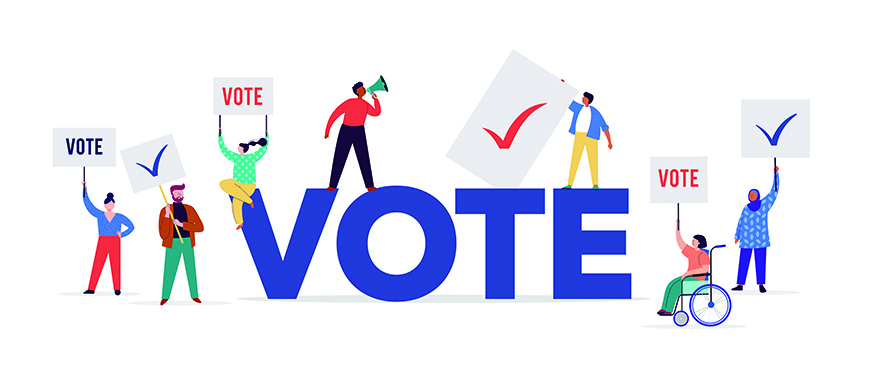The Council of Europe, in cooperation with the Central Election Commission and the Gender Equality Council, presented a study on ‘Identifying Barriers to Women’s (Women Candidates’) Political Participation in Georgia’ at a roundtable discussion, taking place in Tbilisi on 8 December.
The Head of the Council of Europe Office in Georgia, Natalia Voutova, the Head of the Council of Europe’s Elections and Participatory Democracy Division, Markus Adelsbach, the Chairperson of the Central Election Commission of Georgia, Giorgi Kalandarishvili and the Chairperson of the CEC Gender Equality Council, Maia Zaridze underlined the importance of the role of women in electoral processes and the importance to enhance women’s active participation in decision-making.
The Council of Europe study examines how to bring about the necessary structural change in the participation of women in political public life by tackling the obstacles women or women candidates face while being candidates for political parties, parliaments or local councils and how election administration can enhance gender mainstreaming not only within the institution, but also among electoral stakeholders.
The study and its recommendations are based on the practical political experiences of Georgian women, realised by individual interviews on the real-life experiences of women, who are active in politics, those who are currently being candidates for major political groups in Georgia and those women who, after their campaign, did not obtain seats in public authorities.
During a roundtable discussion, representatives of political parties, election officials, governmental agencies, civil society, international organisations and embassies exchanged on how to join and to consolidate efforts to promote engagement of women in electoral processes and to put into practice the recommendations of the report.
The roundtable discussion was organised within the framework of the Council of Europe Project ‘Supporting Transparency, Inclusiveness and Integrity of Electoral Practice and Process in Georgia’.





